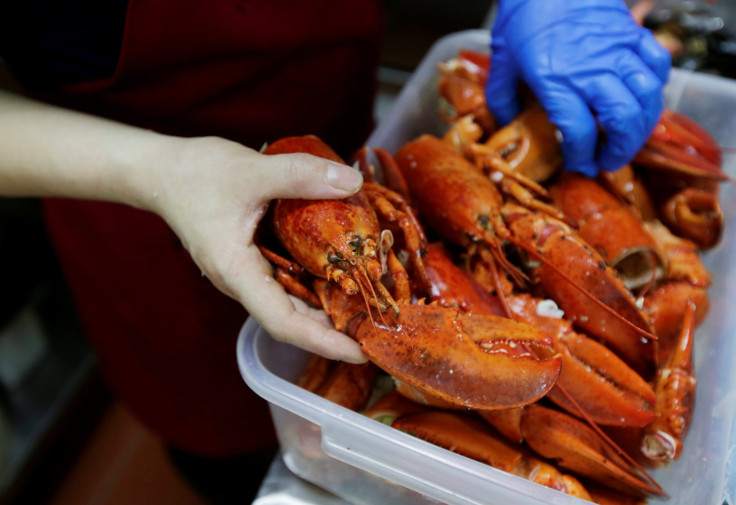Maine Restaurant Uses Marijuana To Humanely Kill Lobsters

A Maine restaurant was trying to get their lobsters high with marijuana smoke before the crustaceans are boiled alive, to lessen their pain, a report said.
Owner of Charlotte’s Legendary Lobster Pound, Charlotte Gill, told the Mount Desert Islander she sedated lobsters with cannabis smoke before they were steamed or boiled alive if the customers requested it.
In the future, she hopes to sedate all lobsters before they are cooked.
“I feel bad that when lobsters come here there is no exit strategy,” Gill, who was running the establishment for the past seven years, said. “It’s a unique place and you get to do such unique things but at the expense of this little creature. I’ve really been trying to figure out how to make it better.”
She conducted her first experiment with a lobster named Roscoe. The lobster was placed in a covered box with about two inches of water at the bottom for a few minutes. Then, marijuana smoke was blown into the water from the bottom of the box.
When Roscoe was taken out, his claw bands were removed and kept off for nearly three weeks, a report said, which added the crustacean never wielded his claws as a weapon again. He was returned to the ocean as thanks for being the “experimental crustacean” sometime last week.
“The reason for keeping it so long, I wanted to make sure there were no adverse affects,” Gill said. “That one time has had significant long-term effects.”
According to Gill, the experiment proved the treatment sedated lobsters and therefore could make their deaths less inhumane.
“The animal is already going to be killed,” Gill said. “It is far more humane to make it a kinder passage.”
But the bid to be humane and lessen the suffering of the lobsters as they are boiled alive might be in vain as the animals might not necessarily have the receptors needed to get “stoned,” a report on the Verge said.
A Maine restaurant is getting lots of press for its supposedly “humane” practice of blowing marijuana smoke on lobsters before boiling them.
— Tom Angell 🌳📰ⓥ (@tomangell) September 19, 2018
But @peta’s not buying it:
"It is highly unlikely that getting a lobster high would make a lick of difference…"https://t.co/VSwq8iFM2V pic.twitter.com/NrjADaA8JB
Dawn Boothe, a professor of pharmacology at the Auburn University College of Veterinary Medicine, said though there was little doubt that cannabis, under the correct circumstances and the correct species, can provide pain relief for animals, it does not mean lobsters exposed to marijuana smoke will be relieved of pain or will get high.
“Some invertebrates have cannabinoid receptors; some do not,” she told the Verge. “And it is not necessarily cannabinoid receptors that are responsible for pain. Other pain receptors are involved and again, it is not clear if lobsters have these receptors.”
Earlier this year, Switzerland banned boiling of live lobsters citing studies which suggested the animal feels pain when killed in this manner. A similar ban was instituted by New Zealand in 1999, and by a small village in Italy as well.
In Switzerland, the recommended method for cooking lobsters was to either electrocute or stab them in the head before they are boiled.
“These are both horrible options,” Gill, a long-time animal rights supporter said. “If we’re going to take a life we have a responsibility to do it as humanely as possible.”
“I’m not selling an edible,” Gill said, adding a happier animal produces a better tasting meat. “The difference it makes within the meat itself is unbelievable. … Everything you put into your body is energy.”
© Copyright IBTimes 2025. All rights reserved.





















